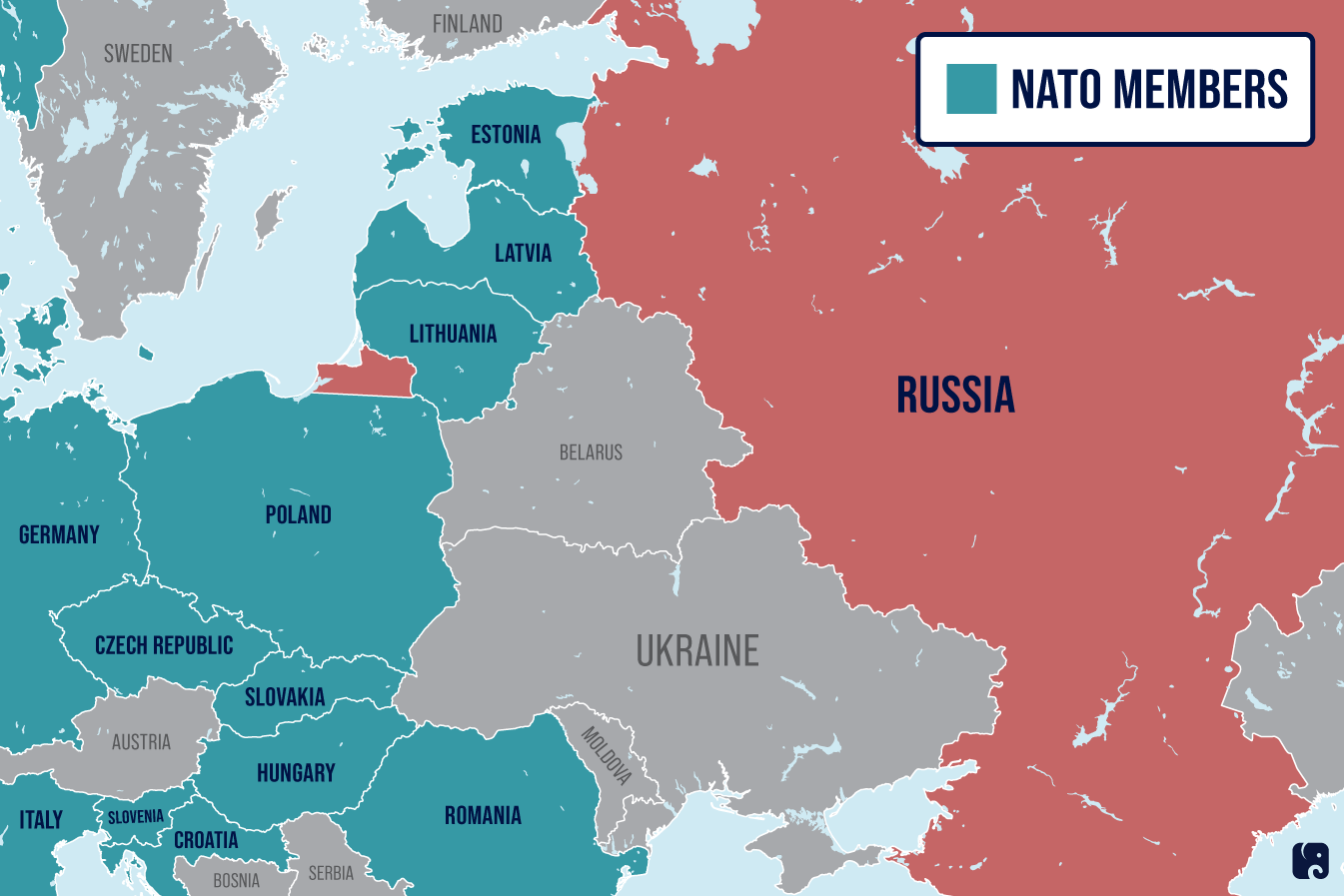What Is At Stake In Ukraine
KEY TAKEAWAYS
- A Russian invasion of Ukraine would create a refugee crisis and risk billions of dollars in trade with the U.S. and cause energy-supply disruptions worldwide.
- If we fail to deter and respond to Russian aggression in Europe, it could spell disaster for U.S. interests in both Europe and the Pacific, as well as our reputation for standing up for our allies.
- We are in a more difficult position because of President Biden’s missteps in Afghanistan and Democrats’ failure to support preemptive sanctions against Russia.
Russia’s amassed military forces on the border of Ukraine pose a threat to Ukraine and our NATO allies in Eastern Europe. They also threaten U.S. interests and democratic values around the globe. A land war in Europe would put significant U.S. trade and foreign investment at risk, disrupt energy markets, and exacerbate the raging supply chain crisis. Failure to deter Russian belligerence and to address its damaging energy policies will degrade our allies’ trust in the U.S. as a reliable security partner and give China a green light for its own aggression in the Pacific.
russia builds its position, as the u.s. loses ground
President Biden’s disastrous withdrawal from Afghanistan undermined the perception that the U.S. is a reliable ally. He left NATO allies in the dark about his plans and abandoned U.S. citizens and Afghan allies to face the Taliban. Now it is critical that we support eastern-flank NATO allies like Poland, Latvia, Lithuania, Estonia, and Romania, so they will continue to stand up to Russian aggression in the future. This is especially urgent as America faces rising tensions in the Pacific, where China is threatening Taiwan and other U.S. allies. If the U.S. has to respond to Chinese aggression on one side of the globe, we will need reliable European security partners to keep Russia in check on the other. China and Russia, aware of this dynamic, are aiming to split the transatlantic alliance and erode U.S. credibility. They recently issued a joint statement condemning the West’s response to Russia’s moves in Europe and demanding that NATO stop admitting new member states.
Russia, which supplies Europe with almost half of its natural gas, is adept at weaponizing its resources to try to peel the Europeans away from the U.S. and pressure them not to counter Russian ambitions. Europe is in the midst of a Russian-created gas crisis, and it remains vulnerable to Russia’s energy influence. Russia is holding Germany hostage with the pending Nord Stream 2 natural gas pipeline. Germany has been one of the countries least supportive of Ukraine, has limited its assistance to Ukraine to military helmets, and has refused to give export licenses to NATO allies that want to transfer German weapons to Ukraine.
Russian Aggression Threatens NATO’s Eastern Flank

War In Europe would cost us at home
If a land war were to break out in Europe, a massive refugee crisis would ensue, our trade with Ukraine would halt, and trade with the European Union and the United Kingdom could be disrupted. The U.S. exported $2.4 billion worth of goods to Ukraine in 2019, including fuels, vehicles, machinery, and agricultural products. Total U.S. trade with the E.U. in 2019 was worth an estimated $1.1 trillion, and businesses and individual people in the U.S. directly invested $2.4 trillion in Europe.
Because Russia supplies a substantial amount of the world’s oil, and prices are set globally, any disruption the oil and gas supply would cause energy prices to jump. Just the threat of invasion has caused oil prices to spike to seven-year highs, and some analysts believe it could hit $100 a barrel. This price increase would continue to hurt Americans trying to fill up their cars and heat their homes. The threat is made more acute by the Democrats’ war on U.S. energy production, which is making the U.S. and the rest of the world much more reliant on OPEC nations and Russia.
A war in Ukraine could also result in thousands of U.S. citizens being trapped in the country. President Biden is reportedly working on plans to help Americans if they can get themselves out of Ukraine.
U.S. Deterrence Options
The Biden administration has several tools it can use to deter Russia from invading, from sanctions to lethal aid for Ukraine. Senator Risch, ranking member of the Senate Foreign Relations Committee, is leading a group of Republicans who have introduced legislation to deter Russia by imposing costly sanctions and providing military aid to Ukraine. So far, President Biden and Senate Democrats have not indicated they are willing to use some of the most effective deterrents before an invasion, like further sanctions on the Nord Stream 2 pipeline.
Republicans in Congress halted the pipeline’s construction through sanctions in 2019. The Biden administration changed U.S. policy and waived additional sanctions, allowing construction to resume. Senate Democrats, bending to pressure from the White House, blocked a bill that would have forced the Biden administration to apply mandatory sanctions against Nord Stream 2. Democrats argue the best approach is to threaten to end pipeline construction if there is an invasion, which assumes stopping the project will be possible by then. They ignore the obvious deterrent effect of reducing Europe’s reliance on Russian energy in the first place, which we could achieve by ending the Biden administration’s war on U.S. energy production and allowing U.S. suppliers to help meet Europe’s demand for natural gas.
Next Article Previous Article
